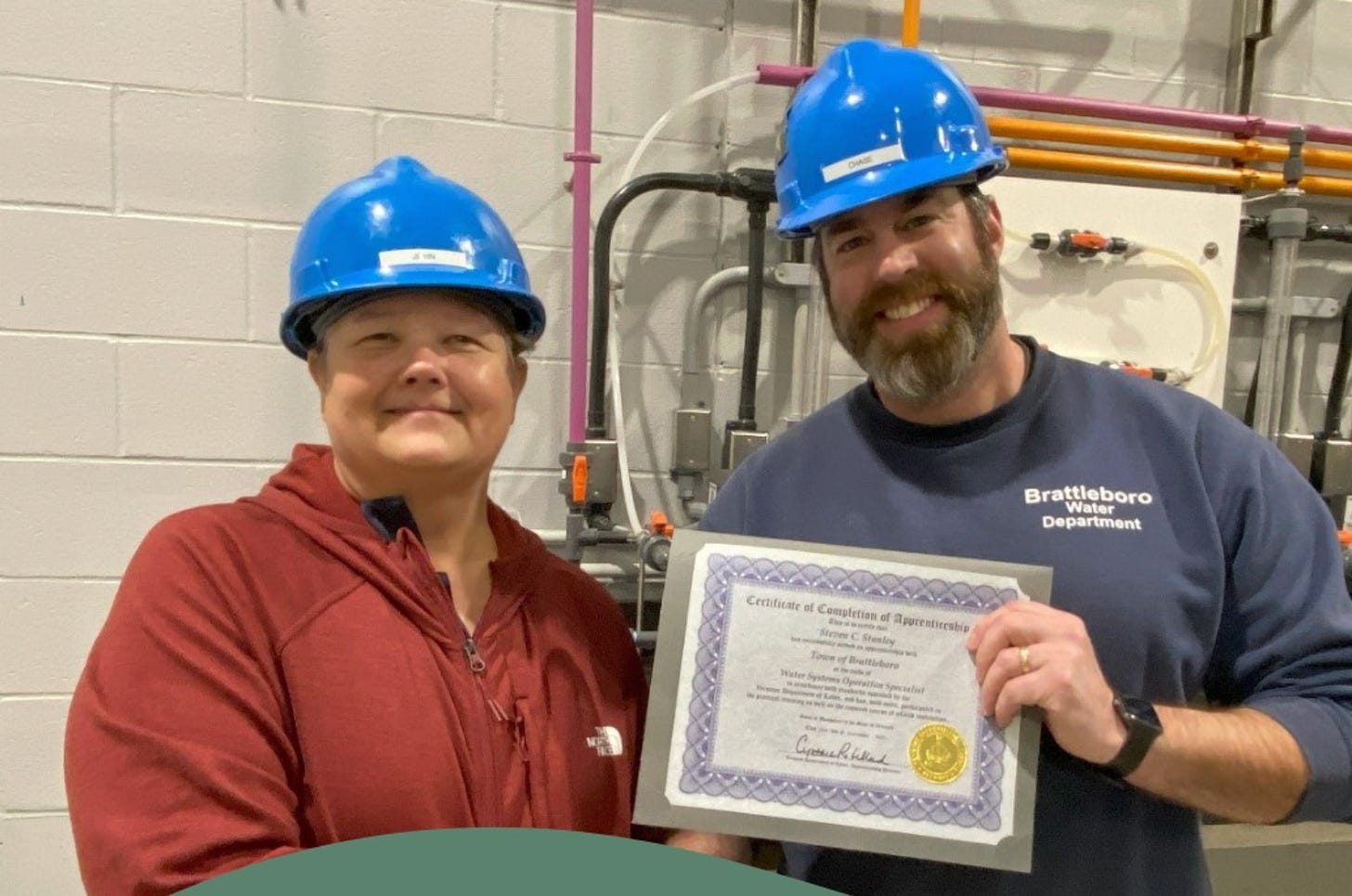Vermont Isn't Just Low on Water—There's a Drought of Expert Water Managers, Too
The Vermont Rural Water Association has noted that for every new operator entering the field, several more are retiring.
While Vermonters are increasingly mindful of water conservation, a less visible but equally critical drought is threatening the state’s water security: a severe shortage of the certified professionals needed to manage and protect our public water systems. This “gray wave” of retirements, coupled with difficulties in recruiting new talent, is creating a workforce gap that could have profound consequences for public health, environmental safety, and the state’s economy. The goal of this article is to provide a thorough overview of this issue, so that every Vermonter can understand the challenges and potential solutions.
The Unseen Essential: Who Keeps Our Water Safe?
Every time a Vermonter turns on the tap, they are relying on the expertise of a certified water system operator. These professionals are responsible for the complex processes of water treatment, testing, and distribution. Their work ensures that the water flowing into our homes, schools, and businesses is free from harmful contaminants. According to the Vermont Department of Environmental Conservation, these operators are the front line of defense in public health, managing everything from rural wells serving a handful of homes to large municipal systems.
The job requires a unique blend of skills in biology, chemistry, and mechanics, along with a state-issued certification that demands rigorous training and continuing education. As one industry expert put it, “You can’t just walk in off the street and do this job. It’s a highly skilled profession that people’s lives depend on.”
A System Under Strain: The Growing Workforce Gap
The core of the problem lies in simple demographics. A significant portion of Vermont’s licensed water operators are at or near retirement age. The Vermont Rural Water Association has noted that for every new operator entering the field, several more are retiring. This creates a net loss of experienced professionals that the state is struggling to replace.
Several factors contribute to this recruitment challenge:
Lack of Visibility: The profession often goes unnoticed by the public. Because the system works so well, most people don’t think about the people who keep it running. This “out of sight, out of mind” reality means that young people are often unaware of the viable and rewarding career opportunities in water management.
Compensation and Benefits: In many smaller communities, water operator salaries have not kept pace with other skilled trades. This makes it difficult to attract qualified candidates who may have more lucrative options in other fields.
The Demands of the Job: Being a water operator, especially in a small system, can be a 24/7 responsibility. They are on call for emergencies like water main breaks in the middle of the night or on holidays. The weight of this responsibility, combined with the often-modest pay, can be a deterrent.
The Ripple Effect: What This Means for Vermont
A shortage of certified operators isn’t just an inconvenience; it poses a direct threat to the integrity of our water systems. According to public health officials, without qualified professionals to perform routine monitoring and maintenance, there is an increased risk of waterborne illnesses and system failures.
For small, rural communities, the impact is even more acute. These systems often rely on a single, dedicated operator. When that person retires, finding a replacement can be nearly impossible. This can lead to a situation where a town is forced to contract with a larger, more expensive management company, a cost that is ultimately passed on to residents. In a worst-case scenario, a system could fall out of compliance with state and federal regulations, leading to costly fines and a loss of public trust.
The economic consequences are also significant. Businesses, from breweries to dairy farms, rely on a consistent supply of clean water. Any disruption to this supply can have a major impact on their operations. Furthermore, a community with a known water system issue will have a harder time attracting new businesses and residents.
Turning the Tide: Forging a Path Forward
Addressing this challenge will require a multi-faceted approach, and there are several promising initiatives underway. According to the Vermont Department of Environmental Conservation, one of the most effective strategies is the development of apprenticeship programs. These programs provide on-the-job training for new operators, allowing them to earn a wage while they work toward their certification. This “earn while you learn” model is a proven way to attract new talent to skilled trades.
Another key area of focus is public education. By raising awareness about the importance of water operators and the career opportunities in the field, we can build a pipeline of future professionals. This includes outreach to high schools and technical colleges to showcase water management as a stable, rewarding, and technologically advanced career path.
Finally, communities themselves have a role to play. By ensuring that water operator salaries are competitive and that these professionals have the resources they need to do their jobs effectively, we can make the field more attractive to a new generation. It is vital for selectboards and town managers to understand that investing in their water systems includes investing in the people who run them.
By understanding the scope of this “drought” of professional water managers, Vermonters can begin a conversation about how to best support this essential workforce. The safety of our water and the health of our communities depend on it.



